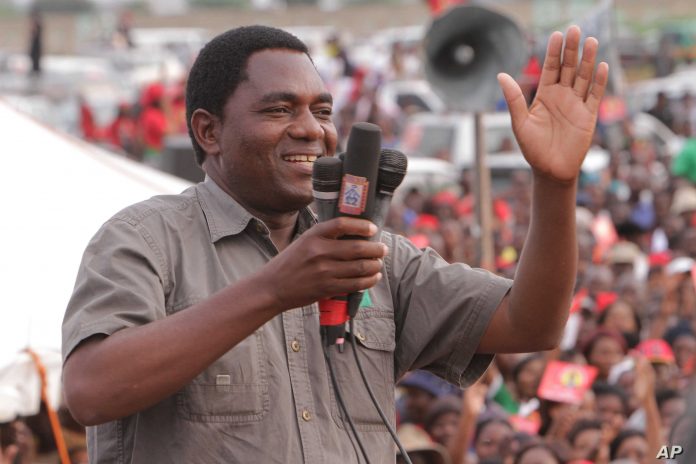
Zimbabwe must take a cue from Zambia, Malawi
Published on August 18, 2021 at 7:07 PM by Chisomo Kambale
The curtain has come down on Zambian elections with opposition United Party for National Development leader Hakainde Hichilema declared winner of the presidential race.
What makes the Zambian poll worth emulating is that outgoing leader Edgar Lungu gracefully conceded defeat and pledged to hand over power peacefully.
“We held our general elections on Thursday and the Electoral Commission of Zambia (ECZ) has released the final results. Based on the ECZ results, I will comply with the constitutional provisions for peaceful transitions of power,” Lungu said.
’’I would, therefore, congratulate my brother the president-elect, His Excellency Hakainde Hichilema for becoming the seventh republican president.”
The same happened in Malawi in June last year when opposition leader Lazarus Chakwera won the country’s rerun presidential election, defeating incumbent Peter Mutharika with 58,57% of the vote.
Thumps-up to the military and the election governing bodies in the two countries for ensuring that electoral justice prevails.
In the case of Malawi, an independent Judiciary refused to be cowed by the incumbent to perpetuate his unpopular rule and abnormalities in the initial election to order a rerun which the opposition won.
The examples set in Zambia and Malawi should be cherished and emulated by all Sadc countries for long-term peace and stability in the region.
The two countries, though far inferior in terms of economic development, have shown others in the region how real democracy works.
Sadc should move away from the scourge of disputed elections that has continued to plague most of its member States, Zimbabwe being the chief culprit.
The region has continued to tolerate wayward behavior by the military and ruling Zanu PF party in Zimbabwe. Soldiers have been beating people while propping up the ruling party.
Sadc stood aloof in 2008 when the late former President Robert Mugabe refused to concede defeat to MDC–T leader Morgan Tsvangirai in the first round of the polls.
Mugabe declared that he could not be removed by a pen (elections) and Sadc failed to take him to account.
What has been happening in Zimbabwe is in sharp contrast to what obtains in her regional peers. Zimbabwe’s progress has been stifled by haggling between the ruling party and the opposition.
Ruling party supporters and top government officials should respect the will of the people.
The Zimbabwe Electoral Commission should act professionally as a true custodian of the people’s votes, and the military should steer clear of civilian matters.
This culture of disputed elections cannot continue to be tolerated in the region.
Subscribe to our Youtube Channel:

